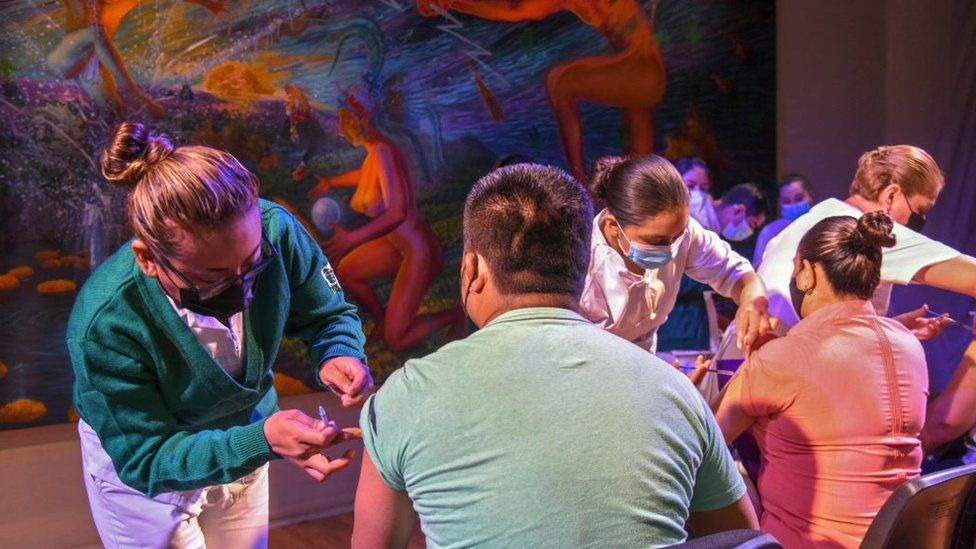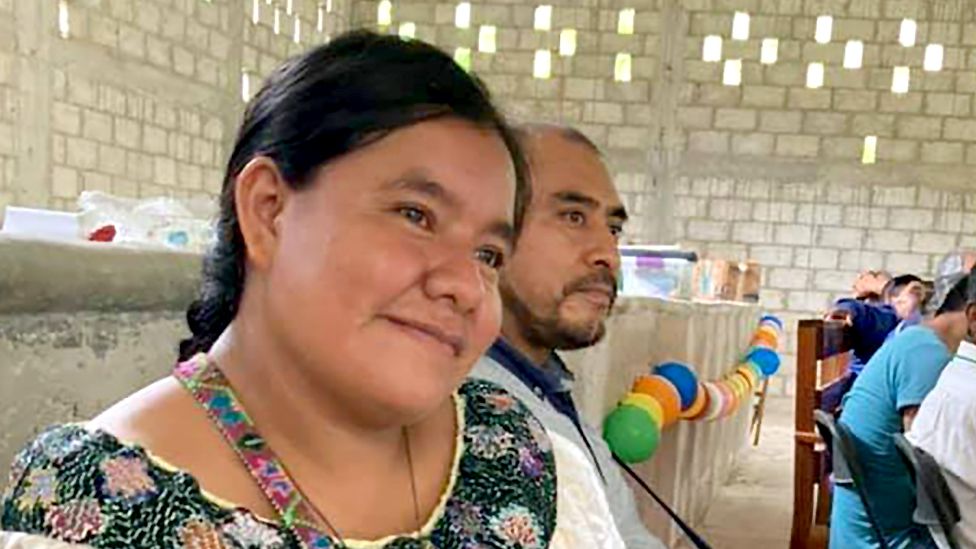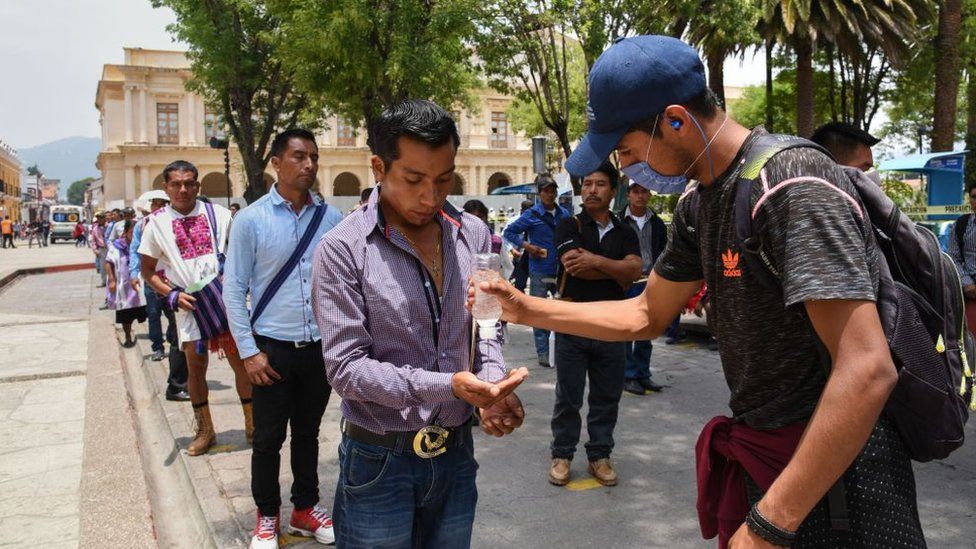BBC News 21 July 2021 by Stephen Hegarty
 |
| Disinformation has led to indigenous communities choosing not to get vaccinated |
In November Pascuala Vázquez Aguilar had a strange dream about her village Coquilteel, nestled among the trees in the mountains of southern Mexico. A plague had come to the village and everyone ran to the forest. They hid in a hut under a tall canopy of oak trees.
"The plague couldn't reach us there," Pascuala says. "That's what I saw in my dream."
Almost 30% of Mexicans have received one vaccine against Covid-19 so far but in the state of Chiapas the take-up rate is less than half of that. In Coquilteel, and many remote villages in the state, it's likely to be closer to 2%. Last week Mexico's President Andrés Manuel López Obrador remarked on the low vaccination rate in Chiapas and said the government needed to do more.
Pascuala is a community health leader for 364 communities in the area and she has been vaccinated. She travels in and out of the village and worries about bringing Covid back to her family and friends who, like most of their neighbours are not vaccinated.
They're influenced by lies and rumours swirling around on WhatsApp. Pascuala has seen messages saying the vaccine will kill people after two years, that it's a government plot to reduce the population or that it's a sign of the devil that curses anyone who receives it.
This kind of disinformation is everywhere but in villages like Coquilteel, it can be particularly potent. "People don't trust the government. They don't see the government doing anything good, they just see a lot of corruption," Pascuala says.
The community in Chilón are predominantly indigenous descendants of the Mayan civilisation. In Chiapas there are over 12 official traditional languages spoken. The first language in Coquilteel is Tzeltal and few people speak much Spanish.
The indigenous community in this part of Mexico has a history of resistance to the central authorities, culminating in the Zapatista uprising in 1994. "The government doesn't consult people on how they want to be helped or how to govern," says Pascuala. "The majority don't believe that Covid exists."
This isn't just a problem in Mexico or in Latin America, it's happening all over the world. In northern Nigeria in the early 2000s and later in parts of Pakistan, distrust of the authorities led to boycotts of the polio vaccine. Some of these communities believed a lie that the vaccine was sent by the US as part of the "War on Terror", to cause infertility and reduce their Muslim population.
"There is fertile ground for rumours and misinformation where there's already a lack of trust in authorities and maybe even in science," says Lisa Menning, a social scientist at the World Health Organization (WHO) who researches barriers to vaccine uptake. "There are information gaps and perhaps poorly designed communications campaigns that have targeted these communities historically."
Nicolasa Guzmán García spends much of her day in Coquilteel tending to her chickens and growing fresh vegetable for her family. She does believe Covid is real but doesn't feel the need to be vaccinated. "I don't leave my home very much. I don't travel to the city, I'm focused on looking after my animals," she says.
She also believes that their traditional lifestyle protects the community - they eat healthy, fresh food and get a lot of fresh air and exercise. And like a lot of indigenous communities across Latin America, the Tzeltal practise a mix of Catholicism and their ancient spiritual religion.
"I can't say if this vaccine is bad or good because I don't know how it was made, who made it and what's in it," says Nicolasa. "But I prepare my traditional medicine myself so I have more confidence in it."
She uses a mixture of cured tobacco, home-made alcohol and garlic to help with breathing problems, and tinctures made from Mexican marigold flowers or water of the rue plant for fever.
Medical doctor Gerardo González Figueroa has been treating indigenous communities in Chiapas for 15 years and says trust in herbal medicine is not just out of tradition but necessity - because medical facilities are often far away.
He believes there are some protective benefits from traditional diet, lifestyle and healing practices but he is extremely worried about low vaccination rates.
"I don't think the efforts of the Mexican government have been strong enough in getting all of society involved," he says. "These institutions have been acting in a paternalistic manner. It's 'go and get your vaccines'."
The federal government has said its vaccination programme is a success, with mortality declining by 80% amidst the third wave of Covid sweeping across Mexico's more densely populated urban areas.
Pascuala believes the authorities gave up too easily when they saw that people were rejecting getting vaccinated in the village.
"It's a false binary to think of supply and demand as separate things," says Lisa Menning of the WHO. She points to the US, where polling in March showed communities of colour had also been hesitant to get vaccinated until authorities put a major effort into making vaccination accessible. Vaccination rates in these communities are now much higher.
"Having easy, convenient and really affordable access to good services, where there's a health worker who's really well-trained and able to respond to any concerns and responds in a very caring and kind respectful way - that is what makes the difference."
It can't be a top-down approach, she says. "What works best is listening to communities, partnering with them, working with them."
Coquilteel is one of millions of small, rural communities around the world where this is sorely lacking. For now, all Pascuala can do is keep trying to convince people to get vaccinated and she's focusing her efforts on those who leave the village, like truck drivers. But until everyone is vaccinated, she can only put her trust in other powers.
"Thanks to God we live in a community where there are still trees, and where the air is still clean," she says. "I think in some way, Mother Earth is protecting us."


